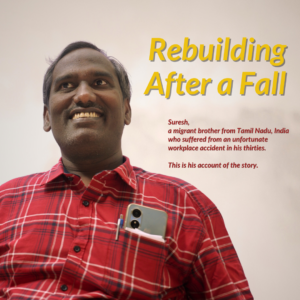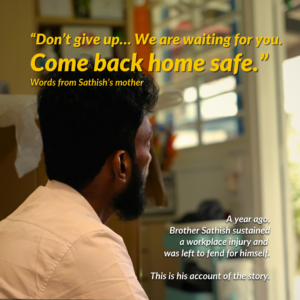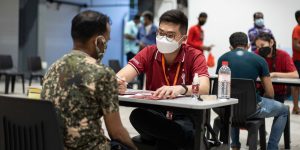By Amelia Chew & Isaac Tay
During our internship at HealthServe, we came across a worrying new “trend” after interviewing 10 workers* for a legal research paper. We found that an increasing number of workers are being brought to Singapore with the promise of work, only to find themselves out of work after a few months, or with no work at all.
Employers typically fabricate stories to explain the lack of work, such as a shortage of projects or no financial means to continue hiring the workers. Theses workers are left with no choice but to look for alternative work in order to pay off the huge debts incurred to come to work in Singapore and so that they can continue supporting their families.
Oftentimes, the workers are not aware that it is illegal to work for another employer other than the one stated on their work permit. Their lack of understanding of local employment regulations is exacerbated by the fact that most of them understand little or no English. And with most employers encouraging or granting the workers “permission” to look for work independently, it is not difficult to understand why most foreign workers labour under the delusion that they are allowed to work for another employer, as long as they have a “valid” work permit.
Errant employers generally hire these workers at a higher pay rate than their legal foreign workers, as it allows them to circumvent the work pass restriction, which limits the number of foreign workers employers can hire based on the number of local workers they have. Even at these higher rates, foreign workers are still “cheaper” to hire than the local workers.
Problems arise when errant employers take advantage of the situation by refusing to pay their workers. Often, such workers are left without remedy as they face potential prosecution if they attempt to claim back their wages through the Ministry of Manpower (MOM). Going through the legal route is also fraught with problems of illegality. More often than not, workers will choose to forgo their hard-earned salary.
Hailing from countries with legal systems and practices different from Singapore’s, migrant workers often face significant challenges navigating the complexities of an unfamiliar environment. The information asymmetry between foreign workers and their employers leaves them vulnerable to exploitation. Enforcement is also weak in many instances. The confluence of these factors has resulted in a systemic black hole where foreign workers frequently fall through the cracks.
*To date, there have been 20 more similar cases.
Amelia and Isaac are second-year law students at NUS, and had interned with HealthServe for a month.





